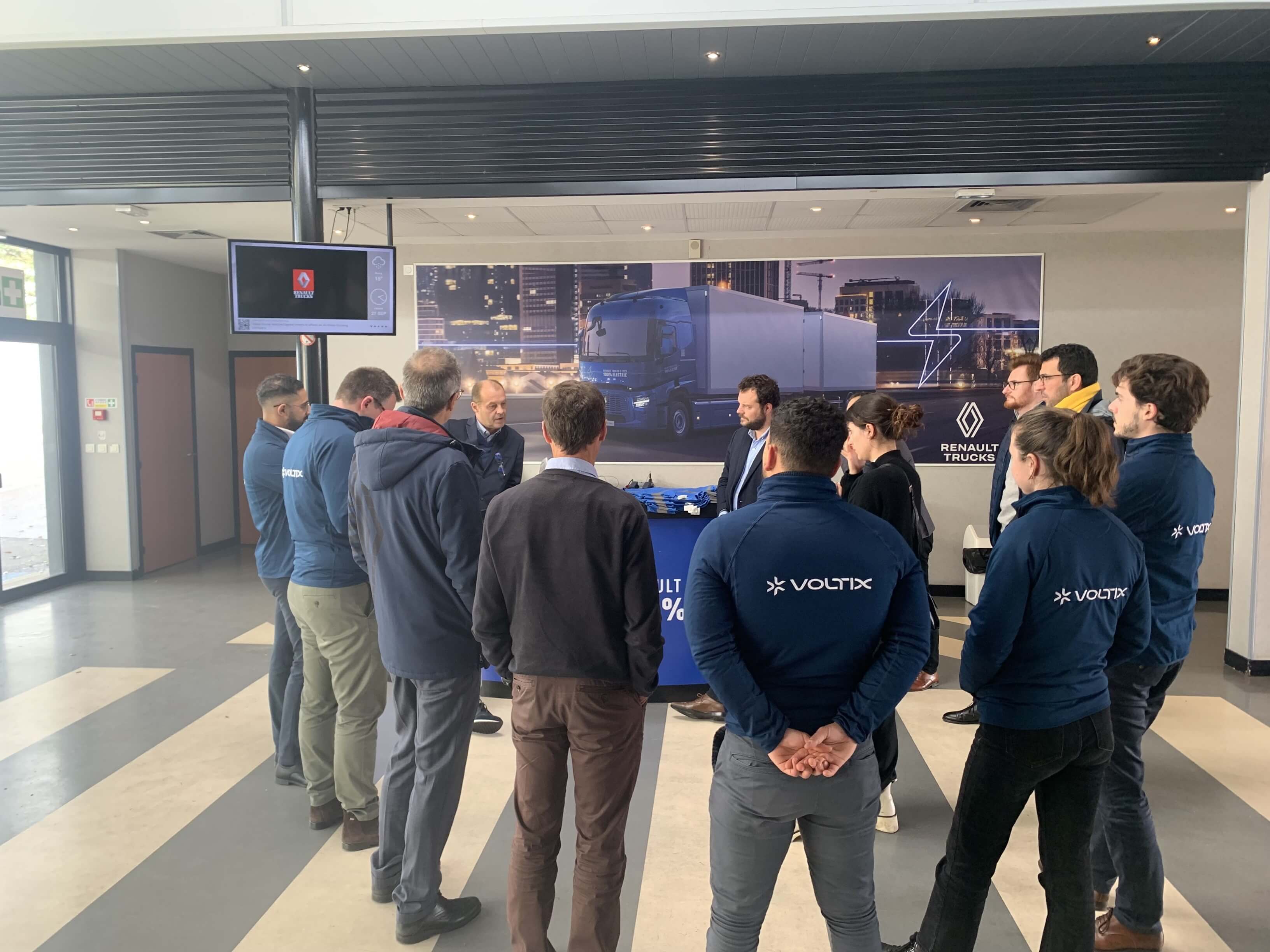Le 26 septembre 2024
A few days ago, the Voltix teams had the opportunity to visit two Renault Trucks sites: the R&D and engineering center in Saint-Priest, and the assembly plant in Bourg-en-Bresse. This immersive visit allowed us to discuss the electrification goals for heavy goods vehicles in the coming years and to observe the various stages of assembling an electric truck. We were impressed by the unique expertise of the operators who custom-build each truck to meet the specific needs of each client.

Voltix visits Renault Trucks
The future of freight transport is electric!
At Voltix and Renault Trucks, we are convinced that the future of freight transport is electric. Electric mobility addresses current challenges of air quality and noise, while contributing to the decarbonization of transport and the fight against climate change.
The advantages of electric heavy goods vehicles
- Zéro emissions: Electric trucks emit neither CO2 nor NOx (nitrogen oxides) during use, contributing to a cleaner environment. Even considering the carbon impact of battery manufacturing, they are more virtuous than diesel in terms of emissions over their lifecycle.
- Urban access: Electric trucks can access city centers and low-emission zones even during pollution peaks, allowing for quiet deliveries during off-peak hours and reducing traffic congestion.
- Noise reduction: Electric trucks are quiet, reducing noise by 10 decibels compared to a diesel truck. They can operate throughout the night in city centers, thus easing daytime traffic.
- Driving comfort: Electric trucks offer superior driving comfort, being smooth to handle and quiet, making them more pleasant to drive.
The need for electric charging stations for heavy goods vehicles
To support this transition to cleaner freight transport, it is essential to develop suitable infrastructure, including specific charging stations for electric heavy goods vehicles. These stations will meet the high energy demands of these vehicles and ensure fast and efficient charging.
The creation of these dedicated charging stations is crucial for several reasons:
- Optimize charging times: Heavy goods vehicles require longer charging times and higher energy capacities than light vehicles. Specific stations will reduce waiting times and optimize logistics operations.
- Facilitate adoption: By offering suitable infrastructure, companies will be more inclined to adopt electric truck fleets, knowing they can rely on a reliable and efficient charging network.
- Reduce emissions: Facilitating the use of electric heavy goods vehicles, these stations will help reduce CO2 and atmospheric pollutant emissions, thus improving air quality and public health.
- Support innovation: The development of this infrastructure will encourage technological innovation and investment in advanced charging solutions, thereby enhancing the sector’s competitiveness.
Voltix is proud to participate in this transport revolution and to promote sustainable solutions for a greener future.
Thanks to Renault Trucks for this inspiring visit and for their commitment to a more sustainable future.

